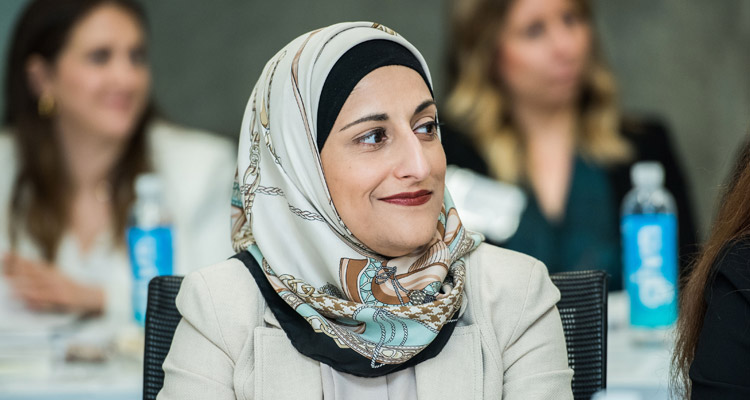On April 11th and 12th, Deerfield and its co-sponsor, Oxeon Partners, hosted the Third Annual Break into the Boardroom (BiB) program in New York City. This day-and-a half-event is the cornerstone of BiB, which was formed three years ago to help promote and cultivate greater gender diversity within boardrooms throughout the healthcare ecosystem.
We featured the 2017 edition of this event in a prior newsletter (March, 2017) but would like to refocus attention on this important initiative and report on the program’s increasing traction and impact.
As it did last year, the 2018 BiB program brought together over 40 accomplished female speakers and board-ready senior executives from across the healthcare universe to discuss important fundamentals of governance, to explore key strategies for identifying, securing and evaluating board opportunities and to network among an elite group of female leaders. Participants brought an array professional experiences including roles as CEOs, CFOs as well as executive level marketing, regulatory, clinical, legal and human resources leaders. The women came from a similarly diverse range of industry subsectors, representing companies from the pharmaceutical, biotechnology, payer, provider, and HCIT spaces. This mix ensured a great cross section of perspectives and created exciting conversations among members of the healthcare ecosystem that don’t ordinarily get to interact. Above all, the experience, commitment and enthusiasm emanating from the group affirmed their board readiness.
As we recap this year’s event, three years into our BiB initiative, several things are clear. First, there remains an imperative to drive change – we are still a long way from our objective of more heterogenous boardrooms. For instance, across the 20 biotech industry start-ups that raised the most venture capital dollars during the first six weeks of this year, 87% of the collective board members were male. Six of these start-ups had no female board members at all. Second, our participants are deriving value from the content and networking opportunities associated with our program, and by promoting greater awareness of the issue across our broader group of stakeholders we are seeing equally important, albeit less direct, benefits. Just getting a CEO or board to stop and realize that their leadership team or boardroom lacks diversity can be an important catalyst for change. Third, we are starting to see some tangible evidence of impact. Our program is directly or indirectly responsible for 10 new female board roles. In the coming year we plan to develop some more concrete metrics of success to hold ourselves accountable and we look forward to communicating increasing evidence that we can make a difference.
In closing, we credit many of our CEO relationships with having helped to identify and sponsor travel for our BiB nominees, which helps ensure a high caliber participant group with engaged mentors willing to support and nurture the women’s governance aspirations going forward. As many of our readers may be in a position to help identify and sponsor candidates in the future, we encourage you to reach out with any recommendations for the 2019 edition of our BiB program. Similarly, we welcome the opportunity to connect our BiB alumni with board opportunities outside of our own portfolios, and would be happy to provide suggestions for board openings where you may be in a position to influence the slate of candidates. Please send BiB inquiries to Leslie Henshaw at lhenshaw@deerfield.com.











